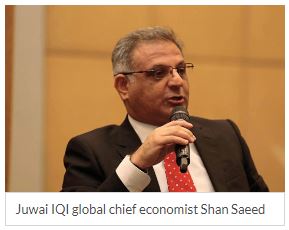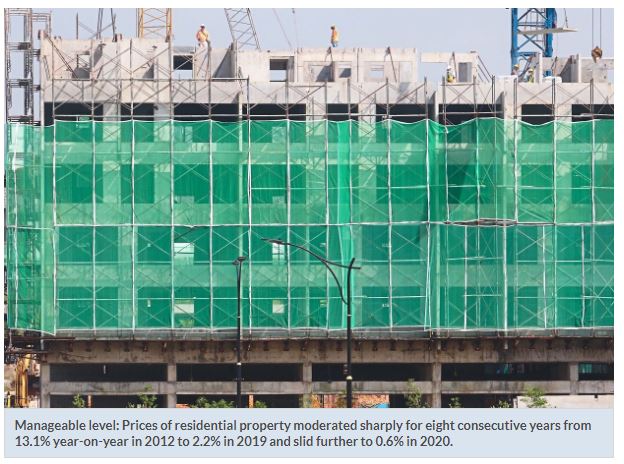Risk of asset price inflation low in Malaysia
PETALING JAYA: Asset price inflation, which is posing a threat in some Western economies, is unlikely to rear its ugly head in Malaysia amid the country’s low interest rates and massive stimulus packages.
Even as the central bank has kept key benchmark interest rate at 1.75% for some time, coupled with a cumulative fiscal stimulus of RM380bil since last year, economists agree that asset-price inflation risk is lower, thanks to the preemptive macro-prudential measures and responsible bank lending practices introduced in late 2010, following the 2008-2009 US subprime crisis.
An asset price inflation, as opposed to goods and services, occurs when the prices of financial assets rise above their underlying or intrinsic value. Such assets include financial instruments like bonds, shares and their derivatives, as well as real estate and other capital goods.
Economists concurred the above measures have helped mitigate unsustainable developments in the property sector and contained easy credit-fuelled accumulation of high household debt.
Since then, domestic asset prices have generally been manageable. For example, prices of residential property (as measured by the House Price Index) had moderated sharply for eight consecutive years from 13.1% year-on-year (y-o-y) in 2012 to 2.2% in 2019 and slid further to 0.6% in 2020.
In Malaysia, the asset-price inflation bubble burst during the 1997-1998 Asian Financial Crisis (AFC) which was caused by the currency crisis.
Bloomberg reported that real estate prices worldwide are flashing the kind of bubble warnings that haven’t been seen since the run up to the 2008 financial crisis.
New Zealand, Canada and Sweden rank as the world’s frothiest housing markets, based on the key indicators used in the Bloomberg Economics dashboard. The United Kingdom and the United States are also near the top of the risk rankings.
“Record-low interest rates, unparalleled fiscal stimulus, lockdown savings ready to be used as deposits, limited housing stock and expectations of a robust recovery in the global economy are all the contributing factors, ” the news wire said.

Commenting on asset price inflation, Socio-Economic Research Centre (SERC) executive director Lee Heng Guie told StarBiz: “If not for the preemptive macro-prudential measures taken to cool down property prices, rein in speculative investment in property sector and contain the build-up of financial imbalance (unsustainable household debt), Malaysia would have suffered a severe asset-price correction during the Covid-19 pandemic which inflicted deep economic recession in 2020 since the last AFC.
“Both the massive employment loss and income retrenchment would cause over-leveraged borrowers to face debt-servicing difficulty.”
Despite the slashing of interest rates to a historical low and easy credit facilities, he said the country has not experienced asset price inflation (bubble) in both the equity and real estate sector.
Lee opined that the central bank is expected to maintain low interest rate until the economic recovery is secured while keeping a close vigilance on financial stability when the pandemic is over.
Once the economy is firmly on the path to recovery post-pandemic, he said Bank Negara will need to start normalising interest rates over time to prevent unsustainable debt levels among businesses and households.
Macro-prudential policy tools must be in place to limit credit growth from moving too rapidly and the build-up of financial imbalances, Lee noted.

Sunway University economics professor Yeah Kim Leng said judging by the “behaviour” of some of the asset prices in the country, asset price inflation is less of a threat compared to several Western economies that are experiencing stock market and property price run-ups due to negative or near-zero interest rates, large fiscal stimulus and improving growth prospects as the pandemic is brought under control.
He said the relationship between inflation or changes in a country’s general price level and asset price inflation is two-way. In Malaysia’s current situation, the cost-push consumer price inflation would exert varying upward pressures on asset prices, depending on individual asset characteristics, investor behaviour and supply-demand dynamics.
“For example, in the domestic property market, foreign labour supply restrictions and rising material costs such as cement and steel bars have driven up construction costs but the house price index registered its first decline in the fourth quarter of 2020 due to falling demand and oversupply.
“Equity prices as measured by Bursa Malaysia’s composite index was up 2.4% in 2020 despite a 2.1% decline in consumer price index (CPI) in the same year. During the January-April period this year, CPI rose 1.5% but the composite index fell by 1.6%, ” he said.
In April, the headline inflation rate, as measured by the CPI, hit the highest level in four years at 4.7% y-o-y. This was due to several factors including the strong rebound in global oil prices and the low base effect.

Touching on the government’s RM380bil fiscal stimulus, AmBank Group chief economist Anthony Dass said the success of these packages depends, among others, on better management of Covid-19 pandemic and the progress of the vaccination rollout. He does not foresee asset price inflation at this juncture.
However, he said the risk behind the government’s fiscal stimulus could create demand beyond the economy’s present production potential, hence risking persistent inflation.
In terms of the impact on inflation on assets, Dass said assets with fixed, long-term cashflows tend to perform poorly when inflation is rising, since the purchasing power of those future cashflows falls over time. Conversely, commodities and assets with adjustable cashflows such as property rental income tend to perform better with rising inflation.
He added that rising inflation erodes the purchasing power of a bond’s future (fixed) coupon income, hence reducing the present value of its future fixed cashflows.

Malaysian Rating Corp Bhd (MARC) head of economic research Firdaos Rosli cautioned that heightened inflation may lead to foreign outflows from local bonds as real returns diminish.
Meanwhile, he said assets like commodities, equities, properties and inflation-linked bonds tend to perform better when inflation is rising as future capital or income gains for such assets keeps pace with inflation.
“Excessive asset price inflation, however, will also lead to asset price crashes if the markets think they are grossly overvalued. If these were to occur, a bear market would ensue, eroding wealth and even increasing defaults as the value of assets held as collateral collapses. This would prompt the central bank to raise rates to prevent it from occurring, “ he noted.

On asset price inflation, OCBC Bank economist Wellian Wiranto said any sustained asset-price inflation could potentially worsen the degree of inequality in the economy.
“Presuming that higher asset prices benefit higher income groups with the disposable incomes to invest, the wealth effect could be a good thing for the economy, but would also exacerbate the gap against the lower income groups, which are less exposed to investment.
“Hence, to curb excessive asset-price inflation, authorities would generally prefer a more targeted approach via specific macro-prudential measures, rather than ‘blunt’ instruments such as interest rate hikes that would affect the lower-income groups too, ” he said.

Drawing on the macro perspective, Juwai IQI global chief economist Shan Saeed said inflation is already showing its head in many countries, including in the United States.
“In my view, inflation numbers are seriously sending signals in the global market and it should not be taken lightly. In the last 13 years since December 2008, ever since the Federal Reserve started its quantitative easing (QE) and lowered interest rates to zero, inflation came back in the market.
“The balance sheet of global central banks have reached US$25 trillion to US$27 trillion (RM103.5 trillion to RM111.78 trillion), ” he said.
QE has distorted asset class prices and caused inflation among all classes globally, he noted, adding that most of the asset classes are moving into distorted or artificial valuations which are not in line with market forces. Distorted valuations range from 25% to 150%, Shan said.
“Rising interest rates can impact two asset classes, namely, equity and bonds fiercely and emerging markets badly. And the bond market is the worst place in a rising interest rates regime, ” he said.

Standard Chartered Bank head of fixed income, currencies and commodities investment strategy, Manpreet Singh Gill, said the current jump in inflation is likely to prove largely transitory.
“Much of today’s rise in headline numbers is led by statistical effects and what we see as temporary supply disruptions.
“We would be more concerned if inflation was being driven by a rise in wages but in most countries it appears to be far from this point, given the gap with pre-Covid-19 employment that has yet to be made up.
“Gold is likely to be the most direct beneficiary in a scenario where inflation goes higher, or is longer-lasting, than we expect. Higher inflation, in turn, pushes bond real yields lower, ” he said.
Source: https://www.thestar.com.my/business/business-news/2021/06/21/risk-of-asset-price-inflation-low-in-malaysia


 English
English




